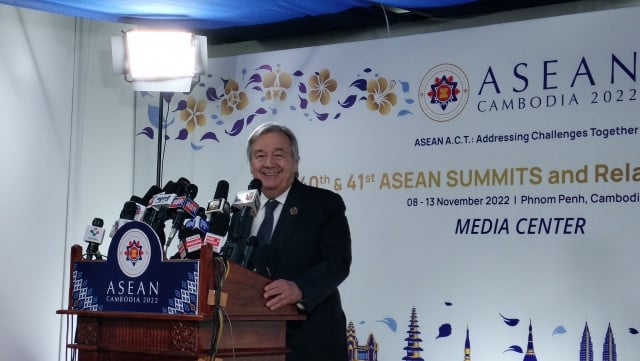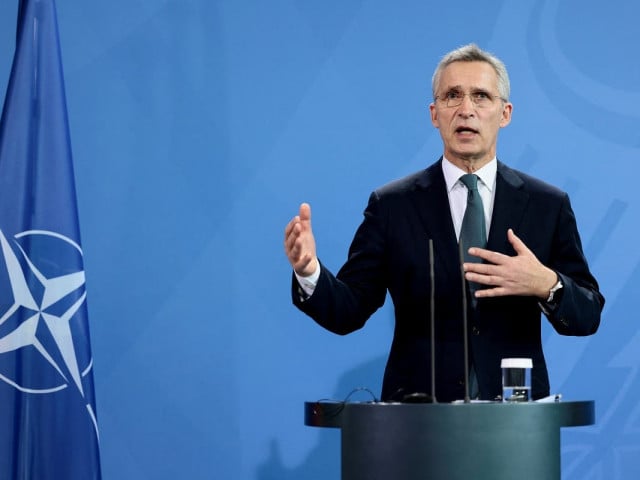UN Chief Points the Finger on Human Rights

- By Teng Yalirozy
- November 13, 2022 8:16 AM
PHNOM PENH – UN Secretary-General Antonio Guterres says respect for human rights requires open civil space and close cooperation with civil society, suggesting that Cambodia take action.
He also condemned what he called the appalling human rights situation in Myanmar.
“It is important that human rights are fully respected, economic, political, cultural, social and civic,” Guterres said on Nov. 12, having met with ASEAN leaders during the 12th ASEAN-UN Summit a day earlier.
He said it was crucial for Cambodia to open the public space and protect human rights defenders and climate activists while extending the cooperation of civil society.
Guterres said the human rights situation varied from country to country and must be viewed from a broader perspective related to the economy, society, politics and culture.
Cooperation from all sectors would bring about a meaningful improvement, he said.
Five Point Consensus Needs to Move Ahead
The secretary-general said human rights in Myanmar were being violated as the civilian space had shrunk.
“In Myanmar, systematic violation of human rights is unacceptable and causing enormous suffering to the people,” Guterres said.
On his Twitter, Guterres on Nov. 12 condemned the human rights situation in Myanmar and repeatedly called on the country's authorities to release all political prisoners and launch an integrated process to return to democratic change.
During the 12th ASEAN-UN meeting, he also told bloc leaders, excluding Myanmar, that Myanmar's political, security, human rights, and humanitarian situation was deteriorating rapidly, condemning the escalating levels of violence and the disproportionate use of force.
“I welcome ASEAN’s principled approach through the Five-Point Consensus, and urge all countries, including ASEAN members, to seek a unified strategy towards Myanmar, centered on the needs and aspirations of Myanmar’s people,” Guterres said during his open remarks at the meeting.
The UN secretary-general also emphasized the need for the Five-Point Consensus to move ahead, adding that Indonesia, the incoming ASEAN Chair, has been tasked with developing more initiatives to support the process.
On Nov. 11, ASEAN leaders reiterated their will to implement the Five-Points Consensus they had agreed upon in April 2021 to bring back peace in Myanmar.
While little progress has been made in its implementation, the Five-Point Consensus “shall remain our valid reference and should be implemented in its entirety,” ASEAN said.
The 40th and 41st ASEAN Summits and Related Summits are taking place Nov. 8 through 13 without Myanmar’s attendance. ASEAN did not invite military leader Min Aung Hlaing but asked for a non-political representative. Myanmar did not send any.
On Feb. 1, 2021, Myanmar’s armed forces ousted the government and took control of the country. ASEAN has not recognized Myanmar’s government since then. However, ASEAN, which is chaired by Cambodia in 2022, has provided humanitarian aid in line with the Five-Point Consensus.
Contacted regarding Guterres’ comments on the situation in Cambodia, Chin Malin, secretary of state and spokesperson for the Ministry of Justice, said on Nov. 12 that he agreed: The government opening the public space, protecting human rights defenders and climate activists, and cooperating with civil society are crucial for the respect of human rights. But this must be done in accordance with the law, he said. “Crossing the line of the law is not the human rights practice in a democracy context,” Malin said.















